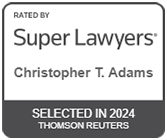4 reasons to hire a lawyer when handling criminal charges in Georgia
Several risks make it advisable for people charged with crimes in Georgia to consider hiring an attorney rather than working with a public defender.
Each year, thousands of people in Atlanta and other parts of Georgia face serious criminal charges. Every year from 2001 to 2011, over 35,000 people were charged with index crimes, according to the Georgia Bureau of Investigation. With other offenses factored in, the total number of annual charges was even higher.
To many people facing these serious misdemeanor or felony charges, working with a court-appointed public defender may seem like a reasonable option. However, most individuals may benefit from considering hiring a private defense attorney in light of the following risks.
1. Addressing prosecutorial errors
Mistakes or misconduct on the part of prosecutors and other parties involved in criminal justice proceedings may put accused individuals at risk for wrongful convictions or unwarranted sanctions. The Innocence Project cites the following as common examples of these errors or misconduct:
• Use of evidence that is based on flawed or questionable forensic science
• Negligence or fraud on the part of prosecutors or law enforcement authorities
• Testimony from informants, who may have reason to lie about an accused individual’s guilt
Here in Georgia, these may be common causes of wrongful convictions. According to the National Registry of Exonerations, 12 out of 27 exonerations made in the state based on DNA testing have involved false forensic evidence, misleading evidence or official misconduct. Beneficially, a private defense attorney who has experience with the type of charge a person faces may be familiar with the mistakes and misconduct that may affect the case. This may enable the attorney to craft a stronger defense.
2. Mounting an adequate defense
Inadequate legal defense is another widely cited cause of wrongful convictions in Georgia, according to the NRE. A significant 11 out of 27 of the state’s DNA-based exonerations involved this factor. The risk of an inadequate defense may be greater for people represented by a public defender, since these professionals are assigned cases and may be overburdened. A private attorney, in contrast, can decide how many clients he or she accepts, which may facilitate more effective representation.
3. Avoiding self-incriminating actions
People who face wrongful criminal charges may be at risk for accepting plea deals, giving false confessions or taking other self-incriminating actions. This may be an especially likely outcome for people who have been accused of serious offenses, such as drug trafficking and possession, sex offenses or violent crimes.
The Innocence Project notes that people often give false confessions when they fear adverse outcomes, fail to understand their legal rights or aren’t mentally capable of making reasonable decisions. Not surprisingly, the risk of false confessions or other self-incriminating actions may be especially acute when people are first arrested and interrogated. This can make speaking with a private attorney as early as possible advisable.
4. Preventing lingering consequences
Even if a criminal charge or the associated sanctions seem trivial, a conviction can have lasting adverse consequences. As Time magazine explains, even a misdemeanor conviction can lead to collateral consequences that limit a person’s ability to find employment in certain fields, secure federal loans and qualify for various government benefits. People who never served time in prison after a conviction may still face these negative consequences.
An attorney may be able to help a person understand the long-term ramifications of a conviction and develop a strategy for avoiding those outcomes. As a result, taking time to at least consult with a private attorney is a crucial first step for most people facing criminal charges in Georgia.




